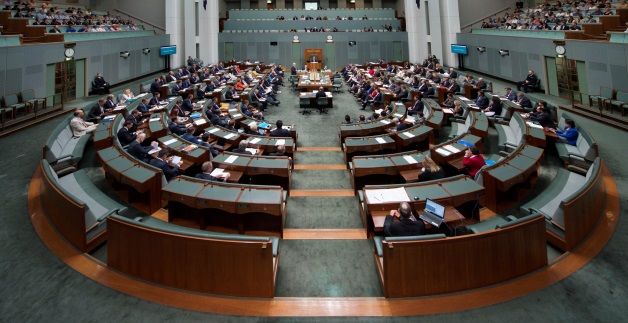
The much-anticipated report from the Standing Committee on Health, Aged Care and Sport’s inquiry into the approval process for new drugs and medical technologies landed last week, with some strong recommendations that were welcomed by a number of groups in the healthcare sector.
Many people, including patient groups have been campaigning for an overhaul of the approval system in the hope that improving process will mean less headlines like this:

The committee’s report is entitled; The New Frontier – Delivering better health for all Australians and contains 31 recommendations.
Committee chair Liberal MP Trent Zimmerman was quoted as saying “Most of our recommendations, we believe, the government can get on with straight away.”
As the report is around 400 pages long, we have summarised some of the key recommendations that caught the attention of industry.
Establishing a national genomics testing program and simplified access to cell and gene therapies
Recommendation 2
People across the healthcare sector are pretty thrilled with recommendation 2, which is really three recommendations in one, each with important implications for patients, clinicians and industry.
11.2 The Committee recommends that, consistent with Recommendation 1 and the establishment of a Centre for Precision Medicine and Rare Diseases, the xxxii Health Technology Assessment (HTA) process for cell and gene therapies be simplified to establish a clear and certain pathway for such therapies.
The first and third parts of this recommendation should greatly benefit patients by improving access to cutting edge cell and gene therapies, which are important for treating cancers, autoimmune diseases and a range of conditions. Industry figures have been quick to express their support for the report and this recommendation in particular.
Alongside industry, the second point is very exciting for patients, clinicians and those in the genetic pathology space. The effective treatment, prevention and early intervention for many serious conditions increasingly require genomic testing. A nationwide genomics testing program will be a strong step toward Australians getting the best of what healthcare innovation has to offer.
More health economists
Recommendation 5
Though not everyone loves an economist, this could actually be good news for the areas of healthcare that struggle to get the evidence they need to prove the benefits of their innovation, particularly when fighting funding and policy battles in Canberra. Training up more health economists working in both industry and government could also help to streamline funding application processes, which is beneficial all round.
11.5 The Committee recommends that the Australian Government develop a labour market and skills strategy to expand the number of health economists in Australia. This could include encouraging training within Australia as well as seeking expertise from overseas
Support for our medical technology sector
Recommendation 17
Government support of domestic innovation and production of lifechanging medical devices is not only great for the industry, it can benefit patients with reduced cost and improved access, and is good news for the Australian economy too.
11.18 The Committee recommends that the Australian Government establish a scheme that supports the domestic medical technology sector, similar to the Food and Drug Administration’s Breakthrough Devices Program in the United States
Funding for submissions without a sponsor
Recommendation 9
This recommendation reflects the extensive consultation process that was part of the inquiry, and responds to many of the patients, clinicians and supporting organisations who made submissions.
11.10 The Committee recommends that the Australian Government establish a fund to support patients, clinicians and non-profit organisations to sponsor registration and reimbursement applications where there is no realistic prospect of a company serving as sponsor, and where the Department of Health is otherwise supportive of the application.
Improving the Newborn Screening Program
Recommendation 21
With the disparities between states, and campaigns for inclusion of other conditions on the screening program, there will be plenty of people clapping their hands at this one.
The Committee recommends:
Quoted in the Sydney Morning Herald, the committee’s deputy chair Labor MP Dr Mike Freelander noted that for reform to happen pressure would be needed:
Dr Freelander said it would probably take pressure from industry and patient groups to help get these reforms through, adding the report and its suggested reforms were his reason for being in Parliament.
“I won’t let it get neglected from my end – I’ll keep pushing these things,” he said. “I’m not going to give up, and I don’t think Trent will either.”
If your organisation needs support getting your message across to politicians or the public, reach out to the London Agency team to discuss how we can help.